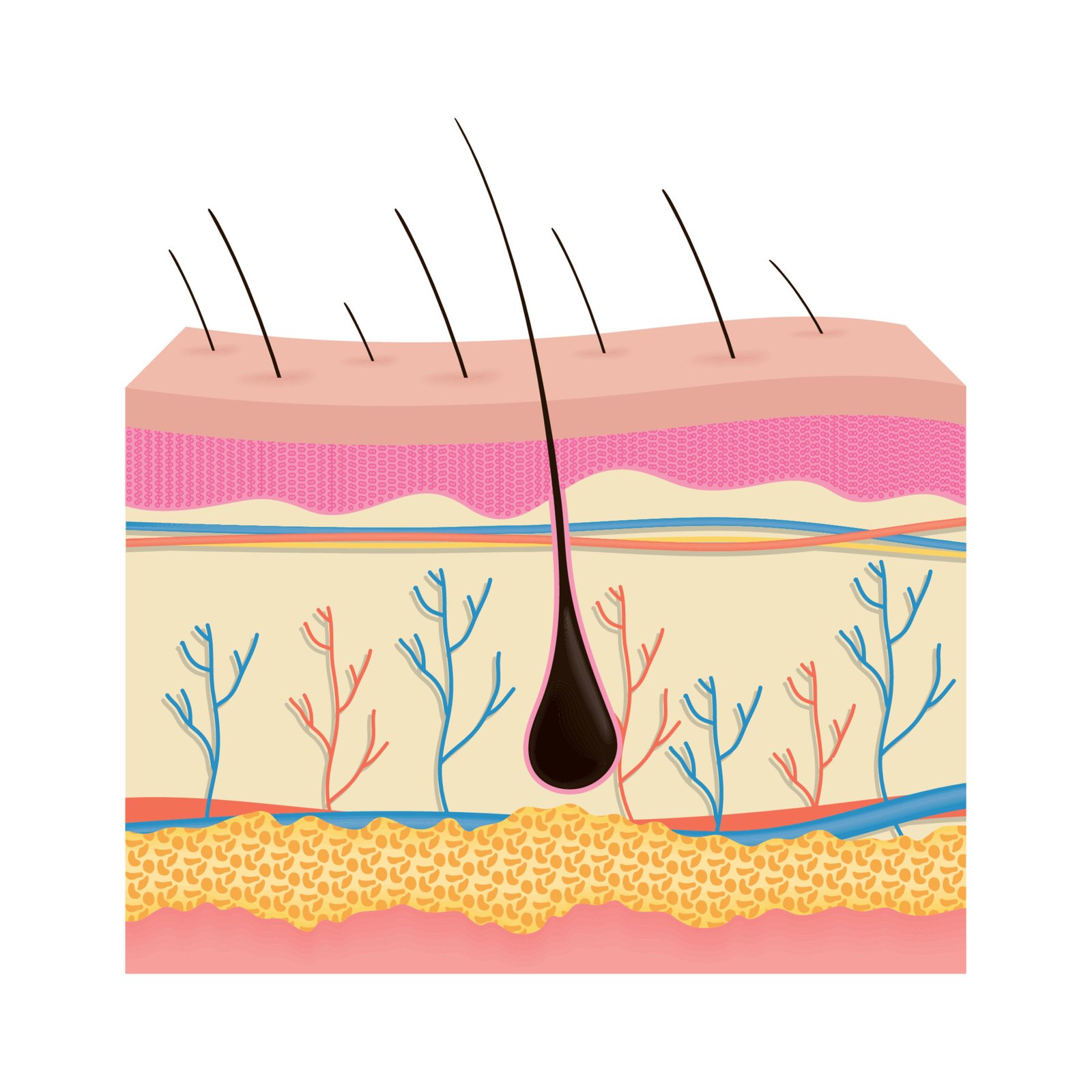Introduction:
Collagen, often referred to as the “building block” of our bodies, plays a vital role in maintaining skin elasticity, joint health, and overall tissue structure. As the interest in collagen’s benefits grows, a common question arises: how much collagen do you need to consume daily to support these functions effectively? In this post, we’ll delve into the science behind collagen intake, backed by credible sources, to provide you with a clearer understanding of your daily collagen needs.

Understanding Collagen:
Collagen, the extraordinary protein at the core of our body’s structure, is a true marvel. It is intricately crafted from a sequence of amino acids, with glycine, proline, and hydroxyproline playing pivotal roles. This remarkable protein forms the very foundation of our skin, bones, muscles, tendons, and ligaments. It acts as an invisible scaffolding, providing the resilience and flexibility that we often take for granted.
Unfortunately, the inevitable passage of time inevitably takes a toll on collagen. As we age, our body’s natural ability to produce collagen wanes, leading to the visible signs of aging, such as wrinkles and sagging skin. Moreover, this decline in collagen production can also contribute to joint discomfort and diminished mobility, affecting countless individuals as they advance in years. But fear not, there are ways to support collagen production to help maintain vitality and ensure that you keep feeling and looking your absolute best.
Collagen Peptides:
Collagen peptides, also known as collagen hydrolysate or hydrolyzed collagen, are a revolutionary form of collagen that has undergone an advanced process called hydrolysis.
Through this cutting-edge technique, the larger collagen molecules are skillfully broken down into smaller peptide chains, resulting in collagen peptides that exhibit exceptional bioavailability and digestibility when consumed. This groundbreaking process involves enzymatic treatment or other carefully curated methods, meticulously transforming the collagen into smaller, highly beneficial fragments, often with a lower molecular weight.
The remarkable advantage of collagen peptides lies in their ability to be dissolved effortlessly in both hot and cold liquids, opening up a world of possibilities for their utilization in an array of recipes and beverages. With their enhanced properties and versatility, collagen peptides are predominantly incorporated into supplements, offering a multitude of potential benefits to those who embrace their transformative power.
Daily Collagen Intake: A General Guideline:
Determining the optimal daily intake of collagen is an essential consideration. Striking the right balance between individual circumstances and overarching recommendations is key. As we dive into the fascinating world of collagen supplementation, various factors such as age, activity level, and underlying health conditions come into play. While these factors add complexity to the equation, scientific research provides us with general guidelines that offer valuable insights into the ideal daily collagen dosage.
While personalized needs may diverge due to the intricacies of each person’s lifestyle and health profile, a common yardstick for daily collagen intake can serve as a starting point. Emerging from the collective findings of scientific investigations, this general guideline suggests that a daily consumption of approximately 2.5 to 15 grams of collagen peptides can unlock visible benefits:
- A smaller daily dose of 2.5 grams could benefit joint pain, skin health, and hydration
- Increasing this dose to 5 grams per day has shown the potential to improve bone density
- larger daily doses of 15 grams have mostly been used to improve muscle mass and body composition
What Are the Side Effects?
Collagen supplementation is generally considered safe with no reported side effects when taken in the recommended daily dosages. Extensive studies on potential adverse reactions are currently limited, but based on the available information, Collagen supplementation is regarded as a safe option for most individuals.
Vegan Collagen Powder:
Vegan Collagen powders currently available on the market do not actually contain true collagen. As a result, the daily intake values discussed in this article do not apply to Vegan Collagen Powders. While these products may offer other plant-based nutrients that support skin and joint health, they do not provide the same collagen-specific benefits as animal-derived collagen supplements.
In the blog post “Vegan Collagen Powder: It Doesn’t Exist!”, I dive deeper into the world of vegan collagen powder and explain why it’s not true Collagen just yet.
Conclusion
Adding collagen to your daily regimen is a surefire way to enhance your skin, strengthen your joints, and boost your overall sense of well-being. Research suggests that consuming collagen peptides in doses ranging from 2.5 to 15 grams daily can yield remarkable results, but remember that individual requirements may differ. To make an informed decision that best suits your health goals, it’s wise to consult with a healthcare professional. Armed with the latest scientific findings, you can confidently embark on a collagen-fueled journey towards optimal wellness.
Sources:
https://www.webmd.com/diet/collagen-health-benefits
https://onlinelibrary.wiley.com/doi/full/10.1111/jocd.12174
https://www.healthline.com/nutrition/how-much-collagen-per-day#dosage


[…] a dosage of 2.5 to 15 grams per day is commonly recommended for both men and women. In my blog post "How Much Collagen Do you need per Day?" you can read the specific dosages and their benefits in […]
[…] The daily recommended dosage of collagen typically varies depending on personal needs and objectives. It is generally suggested to consume an amount ranging from 2.5 to 15 grams per day for both males and females. For a more comprehensive understanding of the specific dosages and the associated benefits, I invite you to visit my blog post "How Much Collagen Do you need per Day?" […]
[…] like smoking, sun exposure, and an unhealthy diet can also deplete collagen levels more quickly. How much Collagen do you need per day? Find it out with this extensive […]
[…] Wonder how much collagen you need per day? Read it all in how much collagen do you need per day! […]